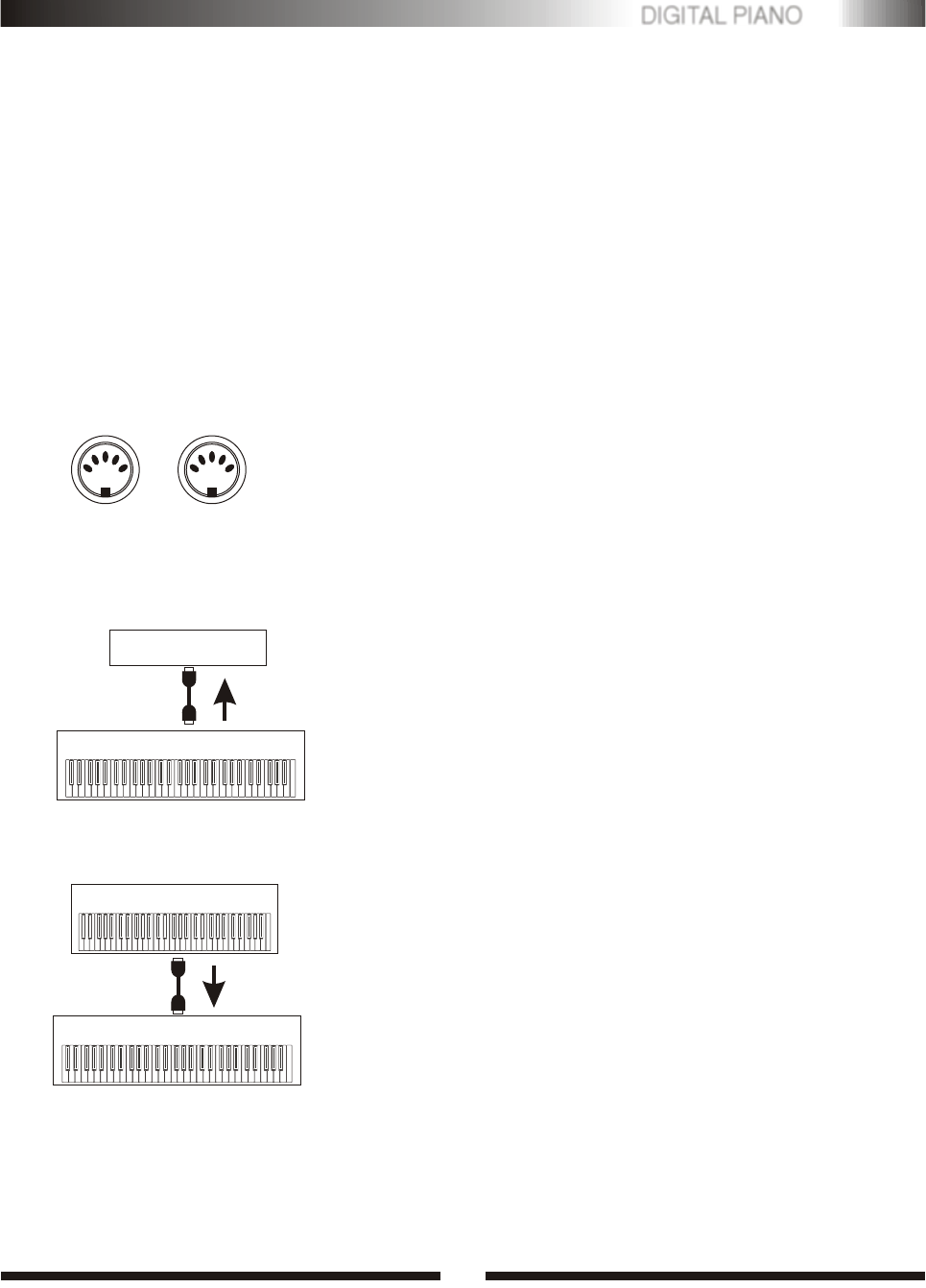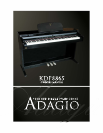
DIGITAL PIANO
10
MIDI, the Musical Instrument Digital Interface, is a world-standard communication
interface that allows MIDI-compatible musical instruments and equipment to share
musical information and control one another. This makes it possible to create "systems"
of MIDI instruments and equipment that offer far greater versatility and control than is
available with isolated instruments.
.This instrument MIDI Connectors
Your instrument MIDI IN connector receives MIDI data from an
external MIDI device which can be used to control yours. The MIDI
OUT connector transmits MIDI data generated by your instrument
(e.g. Note and velocity data produced by playing the keyboard ).
Most MIDI keyboards(including your instrument, of course)
transmit note and velocity (touch response) information via the
MIDI OUT connector when ever a note is played on the keyboard.
If the MIDI OUT connector is connected to the MIDI IN connector
of a second keyboard (synthesizer, etc.) Or a tone generator will
respond precisely to notes played on the original transmitting
keyboard. The result is that you can effectively play two instruments
at once, providing thick multi-instrument sounds. This instrument
also transmit "program change" data when one of its voices is
selected. Depending on how the receiving device is set up, the
corresponding voice will be automatically selected on the receiving
keyboard or tone generator whenever a voice is selected on your
instrument.
MIDI
IN
MIDI
OUT
.MIDI Control
Tone Generator
MIDI IN
MIDI OUT
Local instrument
MIDI KEYBOARD
MIDI OUT
MIDI IN
Your instrument is capable of receiving the same MIDI data, so a second MIDI keyboard connected
to your instrument MIDI IN connector can be used to remotely play yours and select voices as required.
Local instrument
MIDI Control


















